The beginning of the year is both a period of scientific summaries and a time when new opportunities are opening up for researchers. Therefore, Polish Science Contact Agency PolSCA would like to highlight the main conclusions from the 5th report of the European Commission on the integration of social sciences and humanities in the EU framework program ‘Horizon 2020’, which may shape solutions implemented in the next program ‘Horizon Europe’. In addition, we present below three other EU initiatives that may be of interest to the research community in the field of SSH: ‘EIT Cultural and Creative Industries-KIC’ partnership, as well as the ‘New European Bauhaus’ initiative and the continuation of the ‘Creative Europe’ program. We encourage you to read it!
Report ‘Integration of Social Sciences and Humanities in H2020: Participants, Budgets and Disciplines’

The fifth EC report ‘Integration of Social Sciences and Humanities in Horizon 2020: Participants, Budgets and Disciplines‘ , as previous publications, analyses the various dimensions of this integration: from the budget allocated to SSH partners (in general and in each part of the program), through examples of best practices, results of disciplines and sectors involved, to the level of participation of countries in 2018. It is worth adding that the scope of this study on monitoring SSH integration under the Horizon 2020 program was gradually expanded, hence the report for 2018 covers not only all six Societal Challenges, the European Research Council (ERC) grants, Marie Skłodowska-Curie Actions (MSCA) or research infrastructures, but also SWAfS projects (‘Science with and for Society’). The next edition of the report shows that significant quantitative progress has been made in many areas since the beginning of the Horizon 2020 program. Compared to 2017, the data for the next year give us moderate optimism because in 2018:
- there were 130 SSH-flagged topics, up from 113 in 2017 (it should be underlined that the purpose of flagging is to highlight topics where the inclusion of SSH disciplines creates a clear added value);
- 391 projects were funded under the flagged topics in 2018, up from 262 in 2017;
- the total budget for H2020 projects was 1.9 billion euro (compared to 1.2 billion euro in 2017) with 415 million euro went to SSH partners;
- the biggest SSH budget is that for SC6 (‘Europe in a changing world – inclusive, innovative and reflective societies’), at almost €100 million in 2018, followed by SC3 (‘Secure, clean and efficient energy’) – 60 mln euro, and then SC1 (‘Health, demographic change and well-being’) – 53 mln euro.
It should be mentioned that some results were comparable to previous years, e.g. in terms of percentage of projects with SSH partners (86%), involvement of SSH partners (26%) and budget share (22%). As in previous years, the highest percentage of SSH partners were representatives of economics, business and marketing (28%), and political science, public administration and law (25%). Together, these two disciplines represented more than half of all SSH experts involved in projects under the SSH flagged themes. Although social sciences and humanities are very diverse, disciplines such as sociology (9%), communication and education (7%), arts and humanities (5%), psychology (4%), anthropology, ethnology (2%) or history (1%) were relatively poorly represented.
However, there are still some projects under SSH-flagged topics without any SSH participation (14%). There are a number of possible reasons for this, e.g. a failure to highlight SSH dimensions in the topic texts, barriers to interdisciplinarity in certain scientific fields and/or a lack of guidance to evaluators during the evaluation process.
It is also worth noting that the vast majority of SSH partners in H2020 projects financed in 2018 came from the EU-15 countries. The wide gap between the EU-15 countries (77% of SSH partners) and the EU-13 countries (13%) calls for more excellence spreading and widening participation activities in the Member States that joined the Union in and after 2004. As it is shown in the chart below, the percentage of partners from the top six countries (Belgium, Germany, Italy, Netherlands, UK, Spain) was still high (53%), which contributes to a strong geographical concentration in favor of the EU-15.
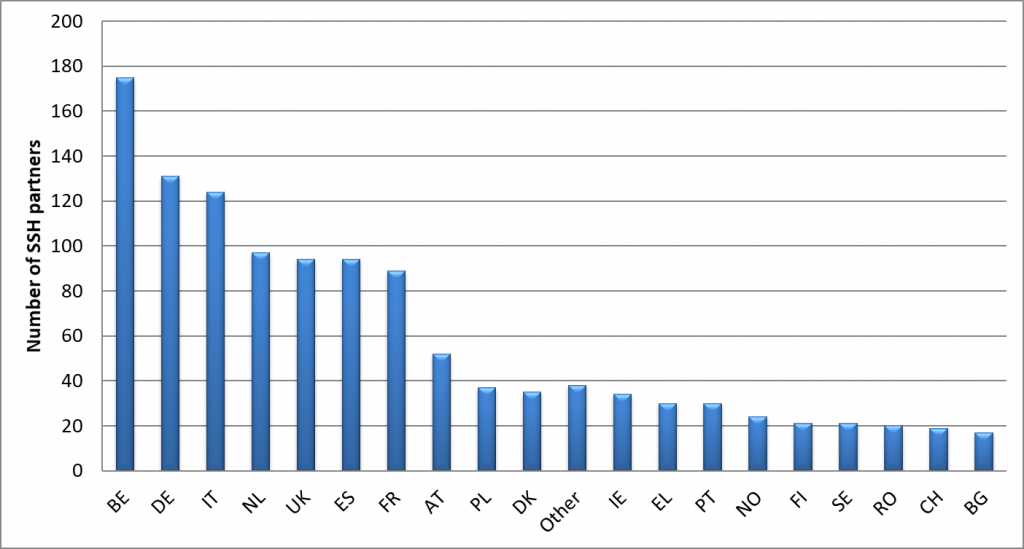
Interestingly, a slight increase in SSH projects was seen in the case of ERC and MSCA grants. When it comes to ERC, in 2018 over 429 mln euro (25% of funds in 2018) were allocated in the panels dedicated to SSH, which is a slightly higher percentage than in the previous year (23%). Of 919 grants awarded, 244 related to SSH, which represents 27% of the projects. Again, this a slightly higher proportion than in the previous year (25%). The most, 49 projects were funded in the SH2 panel ‘Institutions, Values, Environment and Space’ (88,11 mln euro), in SH6 ‘The Study of the Human Past’ – 45 projects (81,46 mln euro) and in SH3 ‘The Social World, Diversity, Population’- 43 projects (79,48 million euro), and the least – 28 – in the SH1 panel ‘Individuals, Markets and Organizations’ (41,08 mln euro).
Regarding the MSCA, the involvement of representatives of the social sciences and humanities in the various actions of this program between 2014 and 2018 increased overall from 20% to 23%. In 2018, one of the four MSCA-IF fellows was a representative of SSH (25%), while fewer projects of this type were carried out under MSCA-RISE (19%) or MSCA-ITN (11%).
To sum up, the conclusions of the next EC report on the integration of SSH in Horizon 2020 projects are optimistic, as they indicate its quantitative as well as qualitative strengthening. The authors of the report – Krzysztof Kania and Rickard Bucksch from the EC’s Directorate General for Research and Innovation – hypothesize that this could be an initial sign of an increased role of the social sciences and humanities in the final period of the program, which of course would have to be confirmed by the data from 2019 – 2020. On the other hand, a full inclusion of SSH is still not reached as the levels of integration remain patchy and vary greatly between parts of the program, as is the representation of the different SSH disciplines. Therefore, intensified efforts in this field are still needed.
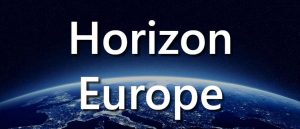
As the authors of the study point out, work on the integration of social sciences and humanities under the Horizon 2020 program should be seen as a first step towards a deeper cross-sectoral approach in the Horizon Europe. The integration of SSH across Horizon Europe responds to the program imperative that it be treated as a key cross-cutting issue. Building on the experience from Horizon 2020, SSH will be fully integrated across all clusters under the new program, including specific and dedicated activities such as missions and partnerships.
In pillar I ‘Scientific Excellence’, representatives of various disciplines, including social sciences and humanities, will be able to continue applying for European funds for their bottom-up research projects under the ERC calls, which will enable for outstanding scientists to expand the boundaries of science and knowledge. Whereas under Marie Skłodowska-Curie Actions (MSCA) the scholarships and exchanges will be founded to help the most talented young scientists expand their knowledge and skills.
Under Pillar II, cluster II ‘Culture, creativity and inclusive society’ will be implemented, mainly addressed to the researchers in the field of social sciences and humanities. This cluster has been strengthened in recent months to guarantee greater support for research and innovation in the cultural and creative sectors by establishing cooperation on cultural heritage and arts & humanities. Currently, the European Commission is working on the Work Program for 2021-2022, hence information on specific topics, budget and dates of the first calls for proposals is expected in early spring this year.
Missions – a new instrument that is an integral part of the Horizon Europe framework program (pillar II) – are also of a social nature. Each mission is designed to act as a set of activities – such as research projects, policy measures and even legislative initiatives – to achieve a measurable goal that cannot be achieved with individual actions. The aim of missions, which cover such areas as food, energy, transport, biodiversity and health, is to support the implementation of the European Green Deal’s goals, the European plan to fight cancer, and the sustainable development in general.
Coming back to the integration of social sciences and humanities in Horizon Europe, it will be based on a holistic approach to SSH, i.e. it should cover the entire cycle in a meaningful and more binding way, from the co-creation of the topics of calls for proposals to the selection and implementation of projects. For SSH flagged topics, SSH expertise should be integrated into a more comprehensive process, from the drafting of calls and topics, through the preparation of conceptual proposals, the composition of project consortia, to the selection and evaluation of projects by evaluators with a clear understanding of SSH. Furthermore, the goals in terms of societal impact should be explicitly set out in the topics, in project proposals and in their implementation reports.
Proposals that have been put forward to ensure the effective, cross-cutting integration of SSH into Horizon Europe and are currently under negotiation include:
- a novel category of inter-disciplinary experts for panel evaluations of SSH flagged projects;
- new cross-cluster complementarities and synergies in terms of SSH presence across the entire new programme;
- Societal Development Plan (SDP), outlining the contribution of SSH fields to the project in question. In SSH-relevant projects, an SDP should set out how the consortium wants to achieve the societal goals of the project, particularly by the strategic deployment of SSH knowledge and expertise. Such an SDP could become a key deliverable, and thus have financial implications for the project.
The solutions presented above are currently being discussed in connection with the future evaluation and implementation of projects in the Horizon Europe program.
‘EIT Cultural and Creative Industries-KIC’ partnership
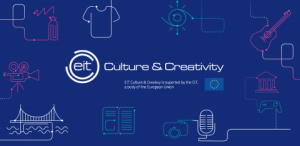
In relation to Horizon Europe, one of the potential funding opportunities for social sciences and humanities’ researchers is the EIT Cultural and Creative Industries partnership which is expected to start in 2022.
Overall, European Partnerships are an instrument that brings together the European Commission and private and / or public partners to tackle some of Europe’s most pressing challenges through joint research and innovation initiatives. Hence, they are a key implementation tool for Horizon Europe and contribute significantly to the EU’s political priorities. In the case of the EIT Cultural and Creative Industries-KIC partnership, the primary goal is to improve the competitiveness and innovation capacity in the cultural and creative sector by supporting talents, supporting the emergence and implementation of innovative solutions, and accelerating the development of innovative companies. Cultural and Creative Industries (CCI) can provide horizontal solutions to European challenges such as:
- Europeans’ creativity, cultural diversity and values;
- European identity and cohesion;
- European employment, economic resilience, and smart growth;
- Europe as a global actor.
In the view of this, the EIT CCI-KIC is about strengthening cooperation, the process of co-creation and the exchange of know-how between education, research and business’ entities in the cultural and creative sectors, as well as with other sectors of the economy at the regional, national and EU level. The EIT Knowledge and Innovation Communities (KICs) will be an institutional partnership with higher education institutions, research organizations, enterprises and other stakeholders as key partners.
What is important, the above-mentioned partnership is still one of 11 proposals, which means that until the Horizon Europe 2021-2024 strategic plan is approved and the legislative package is adopted, it is not possible to speak with certainty about its launch. If this proposal is accepted, the partnership is expected to start operating in 2022. The contact person for EIT CCI-KIC on the side of the European Institute of Innovation & Technology is Mr Michał Gorzyński.
‘New European Bauhaus’ initiative
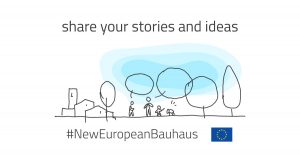
Another interesting proposition for representatives of the social sciences and humanities is the New European Bauhaus, a recently launched initiative of the European Commission, which is an interdisciplinary project combining design, science and technology, aimed at supporting the implementation of the European Green Deal. Important values underlying this initiative are sustainability, aesthetics and social inclusion. In other words, the New European Bauhaus is a creative initiative that breaks down the boundaries between science and technology, art, culture and social inclusion to allow designers to find solutions to everyday problems.
The initiative consists of three phases:
- Design phase – by the end of summer 2021: at this stage, the Commission will gather ideas, ideas, concepts and practices to implement the Bauhaus concept in an open process;
- Delivery phase – this autumn: will begin by setting up at least five New European Bauhaus pilots. Flanking initiatives identified in the design phase and digital networks and platforms will complement the pilots to structure and spread the movement. A ‘community of practice’ formed by all the participants of the design phase will monitor the five pilots: all the partners involved in the broader initiative should be able to learn and benefit from the first experiments towards good impact;
- Dissemination phase – from January 2023: the final phase aims to transfer the acquired knowledge to municipalities and local authorities, as well as to various experts such as architects and designers. It is also about networking and knowledge sharing in Europe and beyond.
It is worth adding that funds for this initiative will probably come from, among others, the Horizon Europe program. Further information, in particular on the financing of selected projects, will be announced shortly on the Commission’s website.
Participation in the co-design process is possible via dedicated website. Individual stakeholders – artists, designers, scientists, engineers, entrepreneurs, architects – can present their initial ideas on how to shape the initiative and how it should evolve. What is more, stakeholders can engage online in a variety of interdisciplinary discussions.

‘Creative Europe’ program
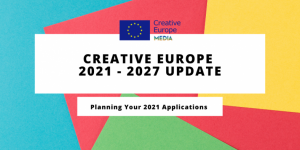
In December 2020, the European Commission announced also the continuation of the Creative Europe program for 2021-2027, aimed at supporting the cultural, audiovisual and creative sectors, and as a result, particularly important for researchers dealing with culture, art, cultural heritage or media. With a dedicated budget of over € 2.4 billion, the new program will continue to promote Europe’s cultural and linguistic diversity, cultural heritage and competitiveness. sectors and will enable cultural / creative organizations to co-create and collaborate across borders to solve current social problems.
As before, the program encompasses three main strands:
- Culture: cross-border movement, social participation and inclusion, economic growth and job creation, arts education enhancing European values and identity, international reach and diplomacy;
- Media: new talents, skills, innovation and cooperation in the audiovisual sector, new business models and technologies facilitating wider access to and promotion of European audiovisual works across Europe and beyond, cinema and internet distribution;
- Cross-sectoral: culture and media approach (art, technology, business) in creating, disseminating, promoting and accessing to the content, high-quality journalism, media pluralism and literacy, culture in social inclusion.
The implementation of the next ‘Creative Europe’ program, including the first calls, is planned in 2021.
We encourage you to follow the activity of the PolSCA Office on our website, as well as on the Facebook profile. If you want to receive similar information and to be regularly updated via PolSCA Office, subscribe to our newsletter (available only in Polish).
Published: 2021-01-26, J. Kramarczyk
Translated: 2021-02-02, J. Kramarczyk
Visuals: Freepik/ European Commission.



